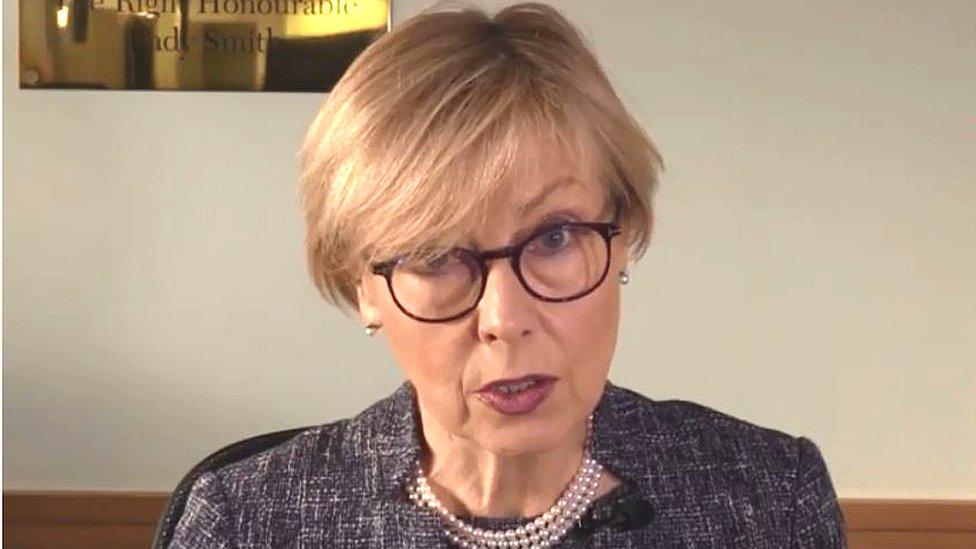Inquiry judge right to issue media ban, Court of Session hears
- Published

Lady Smith, chairwoman of the Scottish Child Abuse Inquiry
A senior judge was right to limit the reporting of a Β£2.6m legal claim against Scotland's child abuse inquiry, a court has been told.
The Βι¶ΉΤΌΕΔ is challenging a decision by Lady Smith, chairwoman of the inquiry, to stop details of an employment tribunal against her being aired.
Roddy Dunlop QC said Lady Smith's clear aim was to protect the inquiry.
But Βι¶ΉΤΌΕΔ lawyers have argued there was a public interest in reporting details of the claim at the earliest opportunity.
The 2019 employment tribunal - alleging discrimination, harassment and victimisation - was brought against the Scottish Child Abuse Inquiry (SCAI) and its chairwoman by a former senior member of the inquiry legal team.
Lady Smith denied any wrongdoing and the tribunal claim was later abandoned.
Roddy Dunlop QC, advocate for the SCAI, told the Court of Session, that an "impartial observer would not think anything amiss" with the senior judge's approach.
'Freedom of the press'
He said: "Yes, Lady Smith had an interest in the orders that were pronounced. But the interest was not an illegitimate interest, a disqualifying interest. That interest was in furthering the aims of the inquiry and protecting participants to it.
"The reasonable observer would understand that those orders were imposed by an independent chair of longstanding and impeccable repute, who would hold to her judicial oath."
Mr Dunlop said the Βι¶ΉΤΌΕΔ had presented an "empty argument" because an alternative remedy for the corporation, as per the detail of the media restriction order, was to present a request to Lady Smith with what it wanted to report on the case.
Kenneth McBrearty QC, acting for the broadcaster, said the idea of seeking this permission "turns everything on its head in terms of the freedom of the press".
He added: "The media is not in the business of asking for permission to publish specific matters which are otherwise in the public domain. It would be considered contrary to journalistic ethics to cede editorial discretion to a party who is the subject of a story.
"And for good reason, it is all wrapped up in what we regard the freedom of the press to tell a story."
Lord Boyd who heard the Court of Session case has retired to consider his verdict
The Court of Session heard on Tuesday that the employment tribunal claim was brought in July, 2019, by the inquiry's former lead junior counsel, John Halley.
A news release, issued by SCAI in October 2019, confirmed existence of the claim and a denial that Lady Smith had discriminated against Mr Halley.
An initial hearing took place that month and Mr Halley abandoned the tribunal two months later.
But Mr McBrearty QC said the SCAI news release did not include the full detail of the tribunal and in effect presented one side of the claim "by a party to proceedings which they wish to report on".
Mr Dunlop told the Court of Session the corporation's case was "academic and unfounded" as the original restriction order had been overtaken by another order.
Both sides have finished presenting their arguments in this civil challenge and Lord Boyd has now retired to consider them.
Related topics
- Published26 January 2021